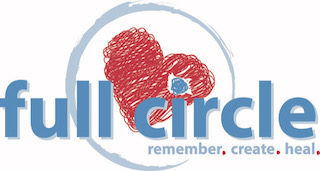By: Karen Kennedy, MSW
One of the hardest parts of grieving is understanding that everyone grieves differently. Individuals respond differently to grief on a number of dimensions including emotions, thoughts, behaviors, physical reactions as well as spiritual expression.
There is “no correct way to grieve.”
Researchers Kenneth L. Doka and Terry L. Martin provide explanations of intuitive grieving and instrumental grieving and a blend of both:
Instrumental grievers:
- Intellectualize their emotions
- Action oriented–physical ways to express grief
- Reluctant to talk about feelings, may only express in private
- Seeks solitude to reflect, independent
- Adapts to loss through thinking and doing
- Have a need to know, seek information, cognitive
- Problem solving, decision making
- Future oriented
- In U.S. culture, men lean more towards instrumental
Intuitive grievers:
- Openly express feelings, verbal
- Seeks support from others
- Yearns for comfort
- May become physically exhausted, anxious, problems concentrating
- Express more sorrow and depression
- In U.S. culture, women lean more towards intuitive
Dissonant grievers:
- Encounter a conflict between the way they experience their grief internally and the way they express it outwardly, which produces a persistent discomfort and lack of harmony. The dissonance may be due to family, cultural or social traditions. Although their grief may be profound and strongly felt, they struggle to hide their true feelings in order to preserve the image they wish to project to the public. Others may condemn themselves and feel very guilty for not feeling whatever they think is expected of them to feel.
Blended grievers:
- A mixture of instrumental, intuitive and dissonant grievers
- Most common griever
It is helpful to be aware of these different types. Difficulties can arise within relationships when there are expectations of how one another “should” be grieving. Different grievers may pass judgment on others and/or be uncomfortable with the way someone else is grieving.
What to do when partners, family members and friends are grieving differently than you?
In her 2009 article, Using Communication to Cope with Loss, Paige W. Toller suggests five different strategies:
- Learn to accept differences. Acknowledge and embrace how the other chooses to express grief. Accept the other’s comfort level with their grief by communicating using active and empathetic listening.
- Compromise. Create strategies that allow one person to partially fulfill the other’s needs while still honoring their own preferences. Find a balance between both of their needs and give each other the freedom to grieve as they wish while still honoring the other’s wishes.
- Rely on nonverbal communication. Those that find it difficult to talk about the loss can convey support and caring through nonverbal communication. Displays of affection, kind gestures and writing each other a letter detailing their emotions without requiring each other to be open verbally are examples.
- Seek outside help. For some, compromising or learning to accept their dissimilar ways of grieving may be too difficult to manage on their own. Seeking assistance from either a professional grief counselor or a grief support group can be beneficial.
- Find supportive family and friends. Family and friends can be a strong source of support during difficult times. The griever who desires to talk and express emotions openly needs family and friends who provide a safe space.
Grieving the loss of a loved one is a difficult journey for many. Learning different grieving styles and ways to support one another during this journey may provide peace and comfort.
At Full Circle we welcome all who are on a journey with grief. We are here to help regardless of your grieving style.
References:
Doka, K. J., & Martin, T. L. (2010). Grieving beyond gender: Understanding the ways men and women mourn, Rev. ed. Routledge/Taylor & Francis Group.
Toller, Paige W. (2009, August 1) Using Communication to Cope with Loss. National Communication Association. https://www.natcom.org/communication-currents/using-communication-cope-loss

